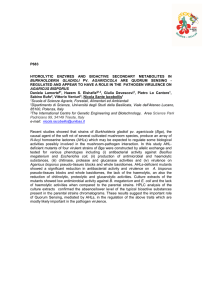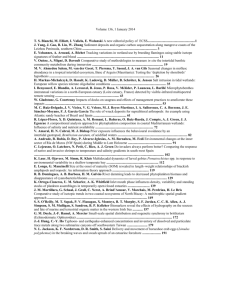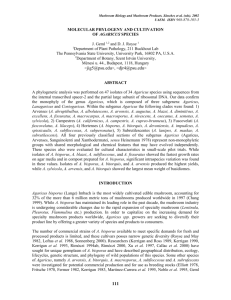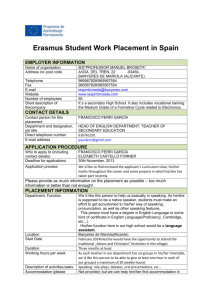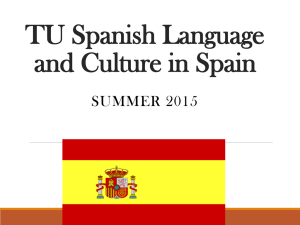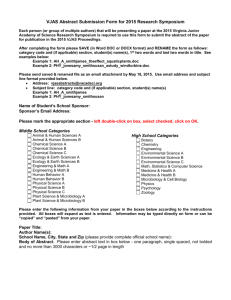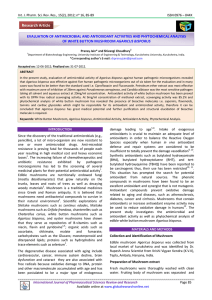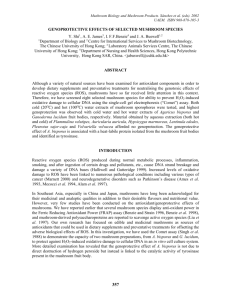Curriculum vitae - University of California, Berkeley
advertisement
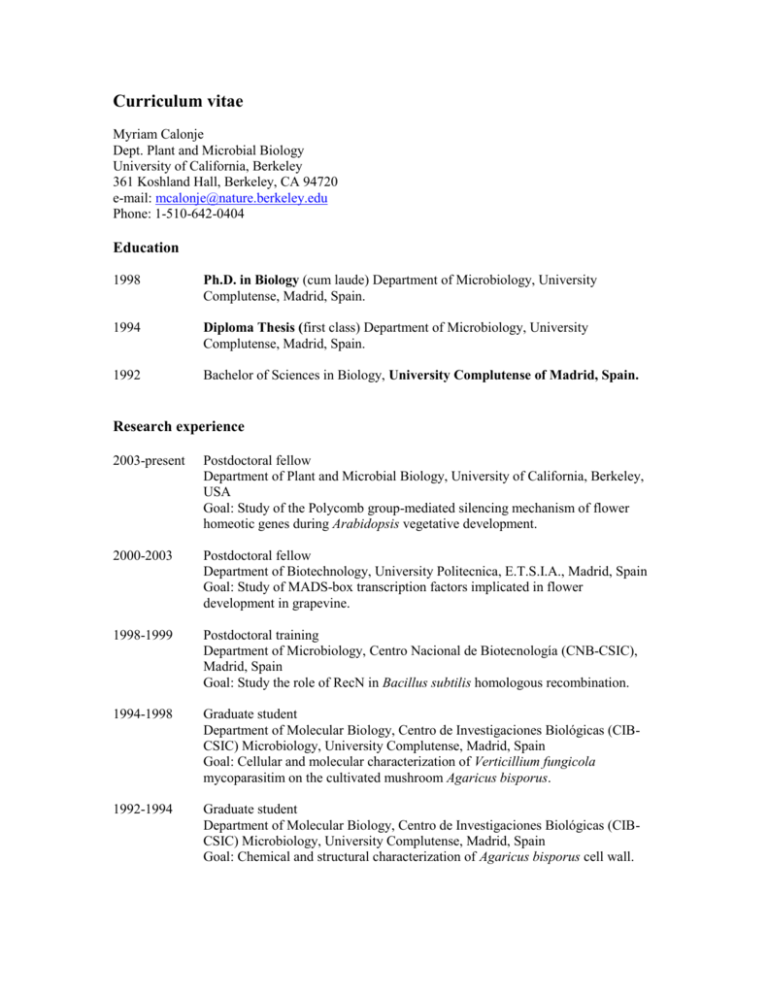
Curriculum vitae Myriam Calonje Dept. Plant and Microbial Biology University of California, Berkeley 361 Koshland Hall, Berkeley, CA 94720 e-mail: mcalonje@nature.berkeley.edu Phone: 1-510-642-0404 Education 1998 Ph.D. in Biology (cum laude) Department of Microbiology, University Complutense, Madrid, Spain. 1994 Diploma Thesis (first class) Department of Microbiology, University Complutense, Madrid, Spain. 1992 Bachelor of Sciences in Biology, University Complutense of Madrid, Spain. Research experience 2003-present Postdoctoral fellow Department of Plant and Microbial Biology, University of California, Berkeley, USA Goal: Study of the Polycomb group-mediated silencing mechanism of flower homeotic genes during Arabidopsis vegetative development. 2000-2003 Postdoctoral fellow Department of Biotechnology, University Politecnica, E.T.S.I.A., Madrid, Spain Goal: Study of MADS-box transcription factors implicated in flower development in grapevine. 1998-1999 Postdoctoral training Department of Microbiology, Centro Nacional de Biotecnología (CNB-CSIC), Madrid, Spain Goal: Study the role of RecN in Bacillus subtilis homologous recombination. 1994-1998 Graduate student Department of Molecular Biology, Centro de Investigaciones Biológicas (CIBCSIC) Microbiology, University Complutense, Madrid, Spain Goal: Cellular and molecular characterization of Verticillium fungicola mycoparasitim on the cultivated mushroom Agaricus bisporus. 1992-1994 Graduate student Department of Molecular Biology, Centro de Investigaciones Biológicas (CIBCSIC) Microbiology, University Complutense, Madrid, Spain Goal: Chemical and structural characterization of Agaricus bisporus cell wall. Publications Calonje M., Chen LJ, Sanchez R. and Sung ZR. EMF1 functions as PRC1 in maintaining flower homeotic gene silencing during Arabiodpsis vegetative growth (in preparation). Calonje M. and Sung ZR. Complexity beneath the silence. Curr Opin Plant Biol. (Submitted) Calonje M., Cubas P., Martínez-Zapater J. M. and Carmona M. J. (2004). Floral meristem identity genes are expressed during tendril development in grapevine. Plant Physiol. 135(3):1491-501. Calonje M., Bernardo D., Novaes-Ledieu M., Perez Cabo A. and García Mendoza C. (2002). Purification and some properties of an hydrophobin secreted by the mycopathogenic fungus Verticillium fungicola. Can. J. Microbiol. 48(11):1030-4. Calonje M., García Mendoza C., Pérez Cabo A. and Novaes-Ledieu M. (2000). Interaction between the mycoparasite Verticillium fungicola and the vegetative mycelial phase of Agaricus bisporus. Mycol. Res. 104, 988-992. Calonje M., García Mendoza C., Ahrazem O., Bermardo D. and Novaes-Ledieu M. (2000). Chemical components of Verticillium fungicola cell wall. Can. J. Microbiol. 46 (2), 101-109. Galán B., García Mendoza C., Calonje M. and Novaes-Ledieu M. (1999). Production, purification and properties of an endo-1,3-beta-glucanase from the basidiomycete Agaricus bisporus. Current Microbiol. 38 (3), 190-193. Bernardo D., García Mendoza C., Calonje M. and Novaes-Ledieu M. (1999). Chemical analysis of lamella walls of Agaricus bisporus bruit bodies. Current Microbiol. 38 (6), 364-367. Calonje M., García Mendoza C., Galán B. and Novaes-Ledieu M. (1997). Enzymatic activity of the mycoparasite Verticillium fungicola on Agaricus bisporus fruit body cell walls. Microbiology 143, 2999-3006. Calonje M., García Mendoza C., and Novaes-Ledieu M. (1996). New contributions to the wall polysaccharide structure of vegetative mycelium and fruit body cell walls of Agaricus bisporus. Microbiologia SEM 12. 599-606. Garcia Mendoza C., Pérez-Cabo A., Calonje M. Galán B., and Novaes-Ledieu M. (1996). Chemical and structural differences in cell wall polysaccharides of two monokariotic strains and their resulting dikarion of Agaricus bisporus. Current Microbiol. 33, 211-215. Calonje M., García Mendoza C., Novaes-Ledieu M. and Labarere J. (1995). Characterization of two commercial Agaricus bisporus strains by cell-wall structure, isozyme patterns, nuclear and mitochondrial restriction fragment length polymorfism (RFLP). Science and Cultivation of Edible Fungi, 133-140.
